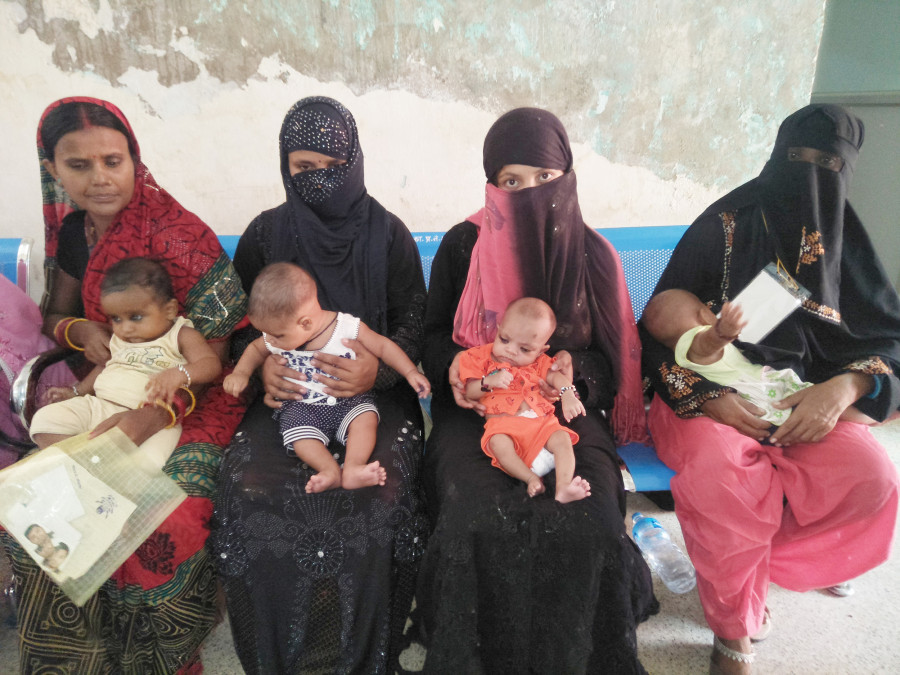Columns
Three years of provincial governments
Despite the challenges, all seven provinces of Nepal have made many achievements.
Khim Lal Devkota
Nepal has made great strides within a short time of implementing federalism. A culture of coordination and cooperation has been promoted between the federal, provincial and local levels. All seven provinces except Province 2 have named their permanent capitals. And all except Provinces 1 and 2 have finalised their names. Despite the challenges, the provinces have embarked on important work in a span of three years.
During this period, necessary institutional structures have been established. As per the 57th report of the Office of the Auditor General released last July, 1,080 offices have been formed in the provinces including the directorate. Almost all the provinces have conducted organisation and management surveys based on need and justification. In terms of government employees, 13,821 staffers have been integrated into the provinces. The main problem seen now is staff management. Due to a lack of personnel, the provincial governments have not been able to work as planned.
The provinces have also prepared roadmaps for provincial development. Except for Sudhurpaschim Province, all the provinces have made public their first periodic plan. Province 1 has also prepared a 10-year master plan for its road network. Development and monitoring related structures such as the Provincial Development Council and Provincial Development Action Committee have also been formed. The Provincial Public Service Commission has been formed for the management of staff at the provincial and local levels. At present, the commissions are working on the appointment of staff.
Coordination and cooperation
Due to the repeated efforts of the chief ministers, the Inter-Province Council has become active to some extent. Some work has been done as per the federalism implementation facilitation action plan, including transferring some institutional structures to the provinces. Apart from this, the Inter-Governmental Fiscal Council and the National Development Action Committee have become a tool to solve the problems of the provinces. The Provincial Coordinating Council under the coordination of the chief minister for resolving issues between the province and local levels is also active to some extent.
Various thematic committees have also been established to coordinate and cooperate in social, economic, infrastructure and other fields between the province and local levels. The provinces have also provided assistance and coordination in the areas of local-level law-making and capacity building. The practice of fiscal transfer to the local level by the provinces has also been initiated. Out of the total provincial budget of Rs264 billion for the current fiscal year 2020-21, the provinces have transferred around 11 percent to the local levels. In all provinces, a Provincial Centre for Good Governance has been established. The centres are providing training on various areas to provincial and local level officials. This institution has also given the message of the importance of devolution.
In order to address the suggestions and grievances of the people, some provinces have conducted Chief Minister, Hello Chief Minister programmes. Bagmati Province has held an investment conference to attract capital. The event held in Chitwan has created a lot of excitement among investors. Other provinces are also planning to hold similar events, but they have been held up due to the Covid-19 pandemic.
The provinces are also coordinating with foreign donors with the permission of the federal government. For example, the Government of Switzerland has agreed to provide a grant of Rs1 billion to the Province 1 government for their Provincial Support Programme. A bilateral agreement was signed with the Swiss government in January 2020.
Trust in federalism
Various programmes have been implemented to improve the social, economic and infrastructural sectors. Province 1 has made arrangements for issuing easy educational loans without collateral for the children of the poor to study Bachelor of Medicine, Bachelor of Surgery (MBBS). Province 2 has initiated the Mukhyamantri Beti Padau, Beti Bachao Abhiyan (Educate Daughter, Save Daughter) and Chhori Sikchhya Muddati Yojana (Daughter Education Deposit Scheme) programmes. Bagmati Province has implemented a One School One Nurse programme. Gandaki Province has started the construction of five model schools in Manang, Mustang and Myagdi districts for enhancing education to poor and deprived communities.
Lumbini Province has arranged to provide monthly scholarships of Rs1,000 to girls from freed Kamaiya, Kamalari, Muslim and Dalit communities who are attending community schools. Karnali Province has started a technical and vocational higher education programme for daughters-in-law, Dalits and disabled persons. Sudhurpaschim Province has conducted programmes including Sanai chhu badhna deu, Balbibaha hoina padhna deu (I am small, let me grow up; give me an education, not child marriage) programme.
In terms of responding to the Covid-19 pandemic, the provincial governments have done a commendable job. Some of the tasks include forming sectoral committees at various levels, establishing quarantine and isolation centres in coordination and cooperation with the local level, managing health equipment and infrastructure, conducting public awareness programmes, distributing relief and establishing hospitals. Some provinces have also conducted relief and rehabilitation programmes to help affected farmers and industrial and commercial sectors. Lumbini Province has implemented a relief programme in the agricultural sector, and Gandaki Province has launched an Rs1 billion business relief package.
The last three years were very difficult and uncomfortable for the provinces. They have not been able to get the expected support from the centre in the areas of resource transfer, organisation building, staff management, law and policymaking, and capacity building. The delay in formulating criteria for the Provincial Public Service Commission also held up its establishment. The federal Civil Service Act has not been passed, and the commissions still have problems to function properly.
The provinces that started from scratch have done a lot despite the challenges. The most important task is strengthening the foundation of federalism. After the local level, they have been able to give the impression that the provincial government is also the closest to the people. In short, over a period of three years, the provinces have worked to instil hope and confidence in federalism at all levels. In order to implement federalism with sincerity, it is necessary to create a working environment for the provinces. It also needs the attention of the federal government and the related stakeholders. The success of the provincial governments is essential for the success of the federal system in Nepal.




 13.12°C Kathmandu
13.12°C Kathmandu















